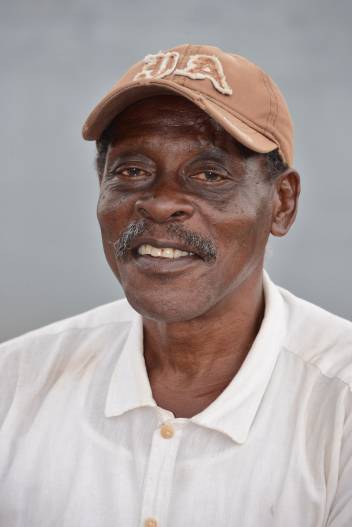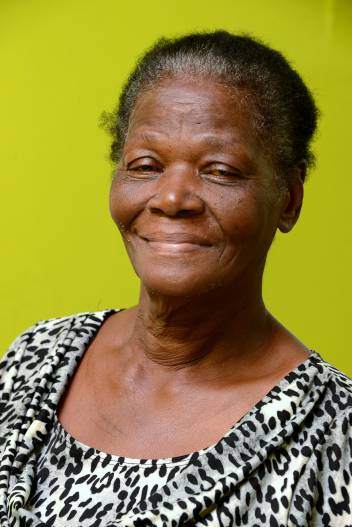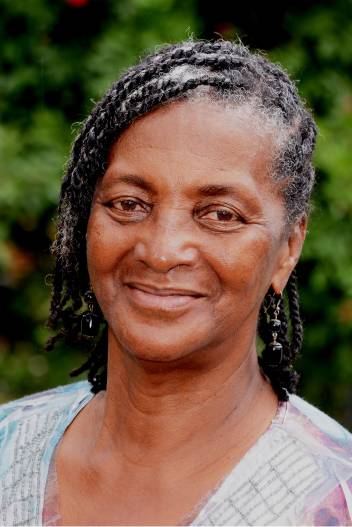Non-communicable diseases account for 79% of deaths in Jamaica, of which diabetes complications cause 11%. In spite of this, the Caribbean country has few systems in place to address these growing figures.
HelpAge International and the World Diabetes Foundation have been working in Jamaica to raise awareness of the increasing prevalence of diabetes and the impact the condition has on people of all ages.
Age Demands Action (ADA) on Health has given older people a platform to raise their concerns and challenge policy makers in person. On World Health Day, we have spoken with older people in Jamaica involved in this project to find out how it has impacted their lives.
“There are now two doctors at the health centre I go to. There is someone willing to help me.”
There is someone willing to help me.”
Livingston is 62 and grandfather to 14 grandchildren.
I knew that I had diabetes but I didn’t know how to control it. I had a numb toe and visited doctors but they couldn’t tell me the reason why. It is because of HelpAge that I learned it was because of diabetes.
I had been to many clinics before HelpAge and there wasn’t any service. When I went and tried my best to see what medical attention I could get, I got nothing.
On several occasions I left home at five in the morning and was still not seen. When eventually you do see the doctor, you can’t get the prescribed medication.
HelpAge has given me hope that help is near. When going to the health centres I now believe that the senior citizens’ organisation has a voice.
I never knew that it is an older person’s right to have access to healthcare, to see the doctor and get a prescription. Now I know how diabetes affects me, that I have to take my medication, and eat properly and on time.
Since ADA on Health last year, I am seeing a cleaner environment and all staff are ready to help. There are now two doctors at the health centre and I can go to the clinic later and still get seen.
I would like the government to know that older people are a foundation and the pillar of the country. We work to develop the country. We have rights!
“At the health centre I never used to hear much about preventing and managing diabetes .”
.”
Esmine is 73 and lives in St Elizabeth, Jamaica. She has 17 grandchildren and three great grandchildren.
I had always heard that diabetes is a killer, but that if you take care of it and stick to your medication, you can live with it. Yet at the health centre I never really used to hear much about preventing and managing diabetes.
Getting involved with the community diabetes workshop I learned about the effects diabetes can have on my body and how I can prevent it by eating healthily and exercising frequently.
Before the project, doctors regularly visited the health centre but they never used to be on time. The waiting is tiring and frustrating. We always leave early in the morning to get to the health centre, but doctors sometimes don’t arrive until midday.
Since the meeting with the regional director of health, all of that has changed. They are on time now.
Yet the changes aren’t reaching everyone. Some older people cannot find the money to get to the clinic, and others are unable to leave their homes. So I would like to see the government find a way for the nurses and doctors to visit their homes.
“Now more people are being attended to and are waiting less.”
less.”
Cynthia is 65 and lives in Jamaica with her husband. She had to stop working to take of her elderly mother who died in 2012.
I used to go to the health centre early to see the doctor and I would sit waiting all day, from half past seven in the morning until about three in the afternoon, and I still didn’t get any medication. It was costly too. When my mother was alive I had to take taxis to get her to the health centre and sometimes we didn’t get seen.
I participated in a diabetes workshop where we learned about blindness, the importance of being physically active and what we should eat to control our blood sugar levels. I also spoke to the regional director about my experience at the health centre and following that meeting there are more doctors and they work longer hours.
Now more people are being attended to and are waiting less. More orders come from the pharmacy to the health centre too.
